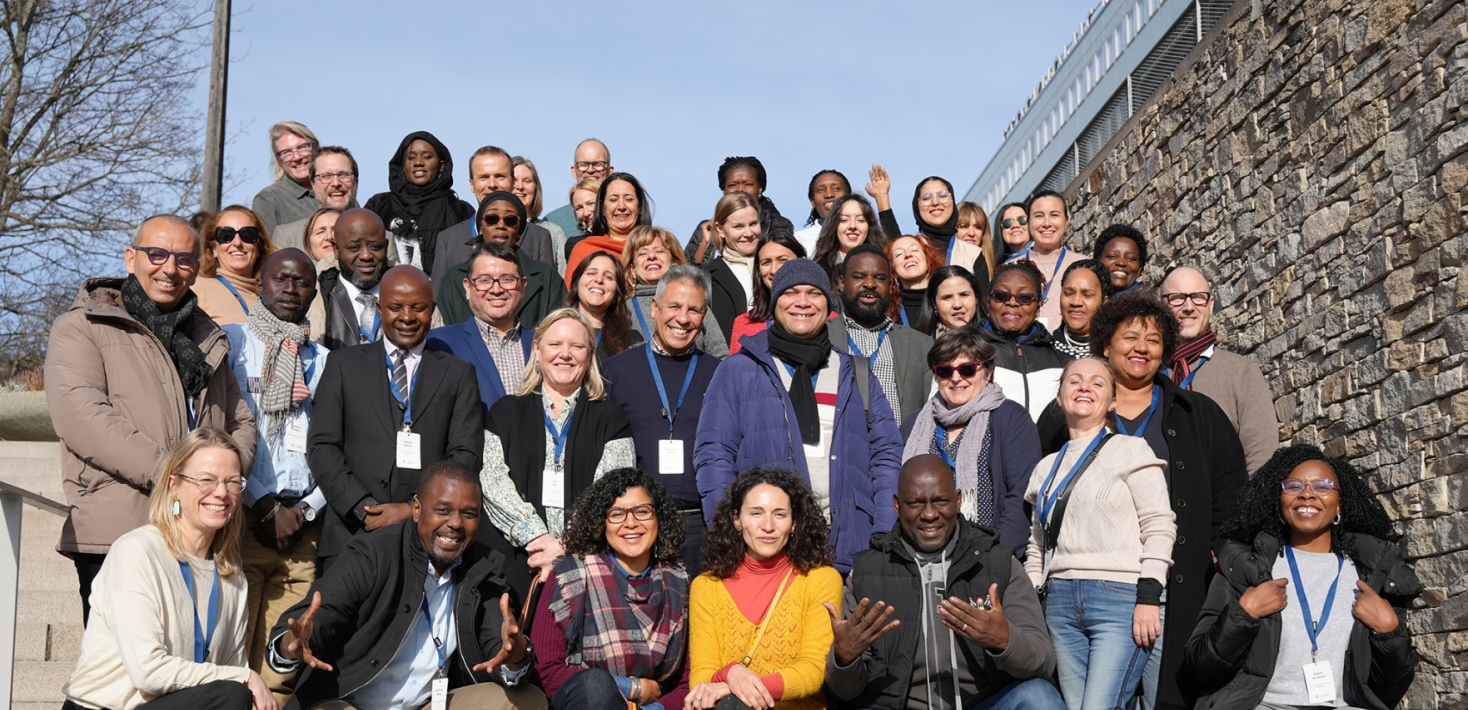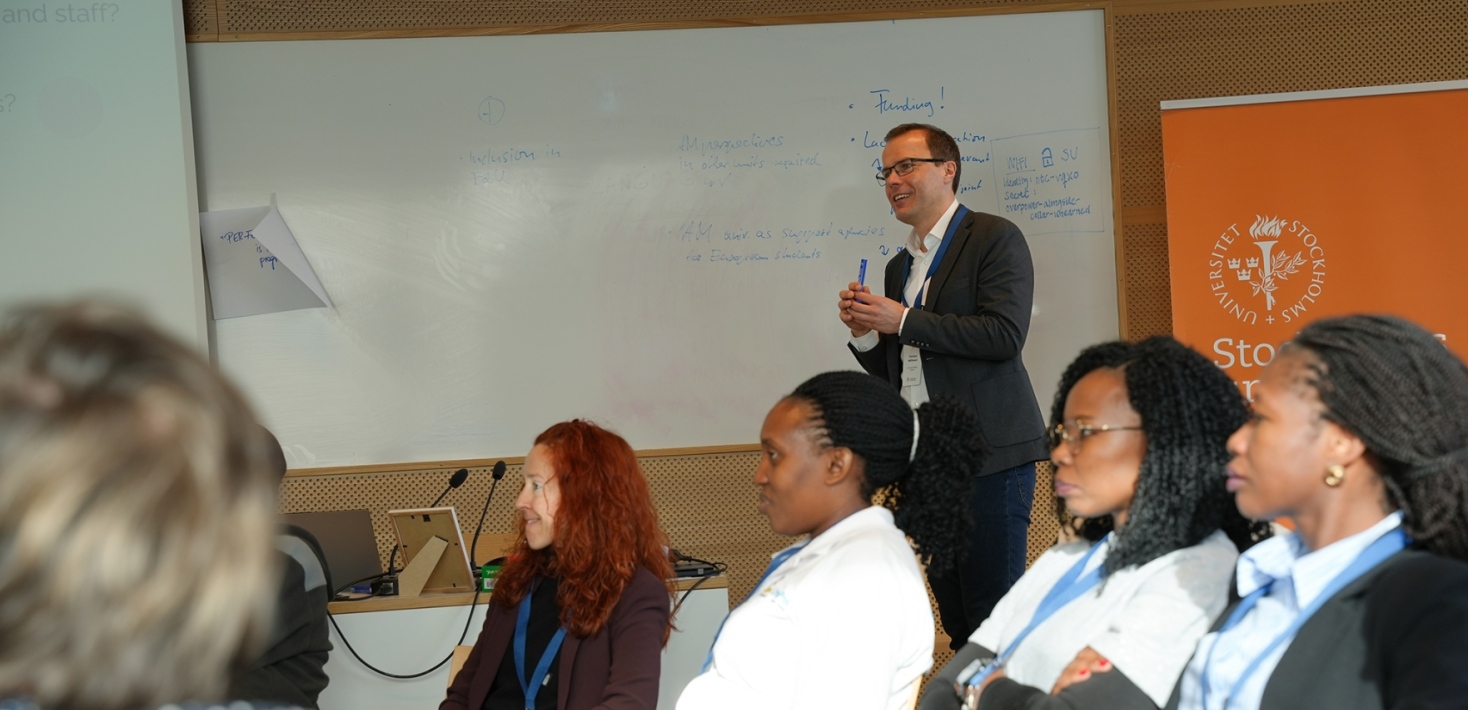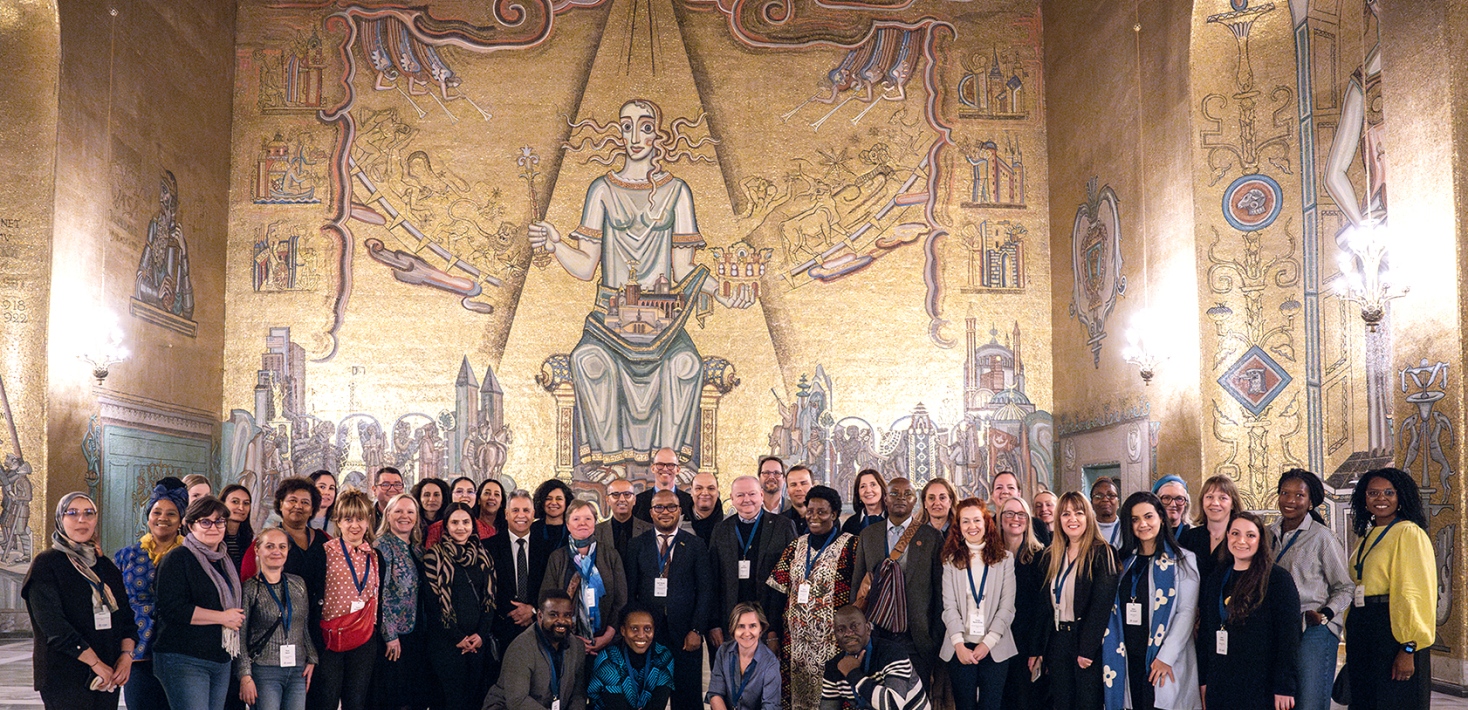Cooperation between our African and European universities discussed in Stockholm

The group included academic leaders, researchers as well as administrators from South Africa, Senegal, Uganda, Tunisia, Morocco and Mozambique. They visited departments and research centres and made practical plans for future exchanges and collaborations. The first step will be the participation of teachers in the transdisciplinary master's programme led by Stockholm University, TRACEE.
The idea is that Stockholm University and other European partners will host researchers from African universities for faculty exchanges, but also that researchers from European universities will be able to work with their counterparts in Africa.
We also hope that student mobility will increase in both directions. For example by enabling students from Stockholm University to spend a semester at the African partner universities,” says Stefan Helgesson, Vice President of Stockholm University and one of the project's initiators.
Contributions from both sides
Makerere University, Hassan II University of Casablanca, University of Sfax, Université Cheikh Anta Diop de Dakar, University of Witswatersrand, and Eduardo Mondlane University are all top universities that cover the whole educational spectrum, including medicine, technology, climate change, humanities and social sciences. Climate adaptation, climate change, but also the social and economic challenges that ultimately drive migration are issues where African universities have a lot to contribute to.

For Christian Möllman, Global Partnerships officer at CIVIS "this will open up a broader scope of academic cooperation in parallel to the educational exchange". In other words, the collaboration with African universities also brings great opportunities to develop the research component and digital technologies in a more inclusive way.
I see many advantages and great synergies in cooperation between Africa and Europe. Together we can find ways to build a better world. But it is important that it is an equal cooperation, where we are seen as complementary, not inferior or superior, highlighted Moussa Sagna, Comparative Literature Researcher and Humanities Area Director at the Université Cheikh Anta Diop de Dakar.
Funding and visa issues, crucial when working on exchange plans
One of the hottest topics of the meeting was the logistic part of the cooperation:
"All partners do not have the financial means to send teachers and PhD students. We hope that we, at Stockholm University, through CIVIS, can lay the foundations to solve this. So we also worked practically on funding and visa issues, which are crucial when working on exchange plans”, says Åsa Petri, Head of the International Office at Stockholm University.

